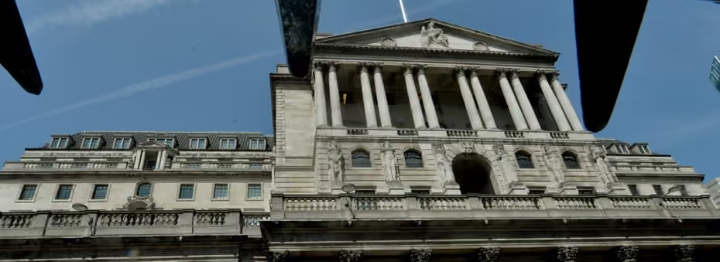The conversation around a windfall tax on UK banks has once again taken centre stage in Britain’s political and financial landscape. With major banks reporting bumper profits in 2024 and early 2025, calls are growing louder for the government to impose a bank windfall tax.
Supporters argue it’s only fair that banks contribute more at a time when households are struggling with high living costs. Opponents, however, warn such a move could hit investment, jobs, and even ordinary savers.
So, what exactly is being proposed, and how could it impact you?
What Is a Windfall Tax?
A windfall tax is a one-off levy on companies that have benefited from extraordinary profits, usually due to external circumstances rather than business innovation. In the case of UK banks, the push comes after rising interest rates boosted profit margins on loans and mortgages while savers saw relatively smaller returns on deposits.

Topics
In simple terms, campaigners argue banks are enjoying “unearned gains” while households face squeezed budgets.
Why Are Banks Being Targeted in 2025?
The idea of a windfall tax on UK banks is not new, but it has gained fresh momentum in 2025 for three reasons:
1. Record profits: Barclays, Lloyds, HSBC, and NatWest all posted multi-billion-pound earnings in 2024, largely fuelled by higher borrowing costs.
2. Cost-of-living crisis: Families continue to face high energy bills, rising food prices, and stagnant wages. Critics say banks should shoulder more of the burden.

3. Public finances: The Treasury is facing a potential £40–50 billion shortfall. A bank windfall tax could provide a quick injection of revenue without raising income tax or VAT.
Supporters’ Argument: Fairness First
Those in favour of a bank windfall tax say it is about fairness and responsibility.
Banks are seen as profiting disproportionately from monetary policy decisions made by the Bank of England.
Taxing some of these profits could help fund public services, reduce borrowing, or provide direct support to households.

Campaign groups highlight that ordinary taxpayers carried the cost of the 2008 financial crisis, so it is only right that banks contribute more when times are good.
Critics’ View: Risk to Investment and Customers
Not everyone agrees. Banking leaders and free-market economists warn that introducing another levy could backfire:
Reduced lending: A higher tax burden might make banks more cautious about lending, particularly to small businesses.

Impact on savers: Some argue costs could be passed on in the form of lower interest rates on savings or higher charges for services.
Global competitiveness: Critics fear that if the UK introduces such a tax, global banks might scale back operations in Britain, weakening London’s role as a financial hub.
What Could It Mean for You?
For everyday people, the effects of a bank windfall tax are still uncertain. However, there are a few possible scenarios:
Borrowers: If banks try to offset the tax, mortgages and personal loans could become slightly more expensive.
Savers: There may be slower improvements in savings rates, even as interest rates remain higher.
Public services: If the revenue is directed toward healthcare, education, or reducing energy bills, households could benefit indirectly.

The Political Angle
The Labour government under Chancellor Rachel Reeves is under pressure to find ways to plug holes in the budget without raising core taxes like VAT or income tax. A windfall tax on UK banks offers an attractive political option—it targets profitable institutions rather than working families.
However, the decision could also spark conflict with financial institutions, which remain powerful players in the UK economy
Looking Ahead
As the autumn budget approaches, all eyes will be on the Treasury to see whether Reeves presses ahead with a bank windfall tax. For now, the debate highlights a deeper question: who should bear the cost of economic recovery—families or financial giants?
One thing is clear: with profits soaring and public frustration mounting, the UK banking sector is unlikely to escape scrutiny in 2025.
Read more: Mortgage Calculator UK –. Halal Mortgage UK 2025 | Best Sharia-Compliant Home Loans & Providers

